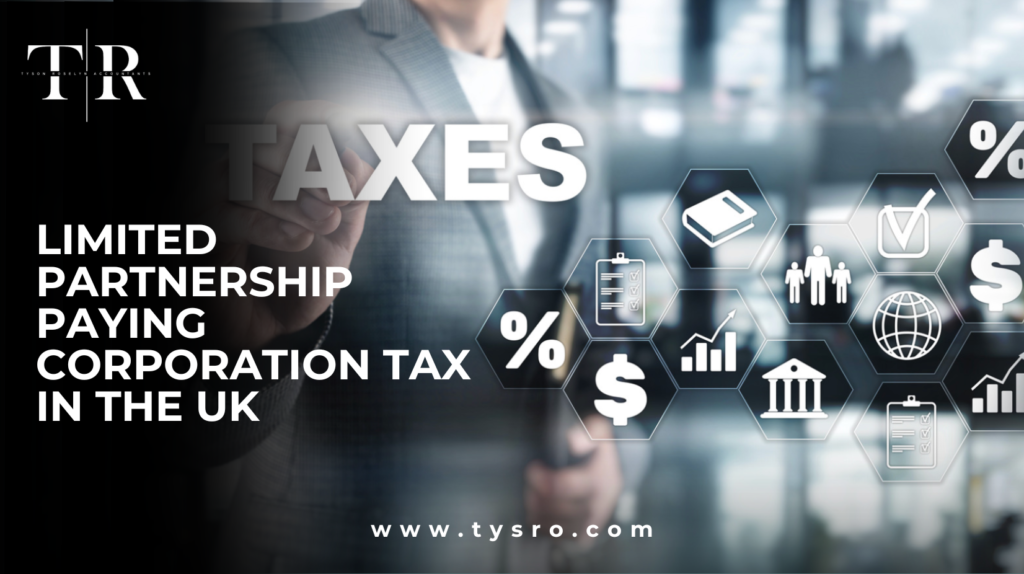Limited Partnership Paying Corporation Tax in the UK A Comprehensive Guide Navigating the world of business taxes can be a daunting task, especially for those involved in a limited partnership. Understanding how corporation tax applies to your business is crucial for financial planning and compliance. This article aims to provide a clear and detailed guide to help you understand the intricacies of limited partnerships and corporation tax in the UK.
What is a Limited Partnership?
Limited Partnership Paying Corporation Tax in the UK A Comprehensive Guide A limited partnership (LP) is a type of business structure in the UK where there are two types of partners: general partners and limited partners. The general partners manage the business and are personally liable for its debts, while the limited partners contribute capital and share in the profits but do not manage the business and have limited liability.
Example: Imagine Sarah and Tom decide to start a business. Sarah wants to manage the business, and Tom wants to invest money without being involved in day-to-day operations. They form an LP where Sarah is the general partner and Tom is the limited partner.
Corporation Tax and Limited Partnerships
Limited Partnership Paying Corporation Tax in the UK A Comprehensive Guide Unlike limited companies, which are subject to corporation tax on their profits, limited partnerships themselves do not pay corporation tax. Instead, the individual partners are taxed on their share of the profits. However, if a limited partnership is a corporate partner (i.e., one of the partners is a company), that partner will be subject to corporation tax on its share of the profits.
Step-by-Step Guide to Limited Partnership Paying Corporation Tax in the UK A Comprehensive Guide
- Identify the Type of Partners: Determine if your limited partnership has individual partners or corporate partners.
- Calculate Profits: Work out the total profits of the limited partnership.
- Distribute Profits: Allocate the profits according to each partner’s share in the partnership agreement.
- Tax Responsibilities:
- Individual Partners: Pay income tax on their share of the profits.
- Corporate Partners: Pay corporation tax on their share of the profits.
Example: Sarah (an individual) and Tom (a company) are partners in an LP. The LP makes £100,000 in profit. Sarah’s share is £60,000, and Tom’s share is £40,000. Sarah pays income tax on her £60,000, while Tom’s company pays corporation tax on its £40,000.
Why Understanding This is Important
Knowing how corporation tax applies to your limited partnership is essential for several reasons:
- Compliance: Ensures you are meeting your legal obligations and avoiding penalties.
- Financial Planning: Helps in accurate budgeting and financial forecasting.
- Profit Allocation: Clarifies how profits are distributed and taxed among partners.
Anecdote: The Case of the Confused Partners
John and Lisa, friends from university, started an LP to develop a new app. John was the tech genius (general partner), and Lisa, a successful entrepreneur, invested capital (limited partner). They were excited about their first year’s profits but got confused about taxes. They initially thought the partnership had to pay corporation tax, but after consulting with an accountant, they realized that only Lisa’s company had to pay corporation tax on its share of the profits. John had to pay income tax on his share. This understanding saved them from a lot of stress and potential penalties.
How to Ensure Compliance
- Consult an Accountant: Always get professional advice to navigate tax obligations correctly.
- Keep Accurate Records: Maintain detailed financial records to simplify profit calculation and tax filings.
- Understand Tax Deadlines: Be aware of the tax filing deadlines for both income tax and corporation tax.
- Use Accounting Software: Tools like QuickBooks or Xero can help manage your finances efficiently.
Choosing the Right Accountant
Selecting the right accountant can make a significant difference in managing your limited partnership’s tax responsibilities. Look for an accountant who:
- Specializes in Limited Partnerships: They will have specific knowledge and experience.
- Offers Personalized Advice: Tailored advice based on your business structure and needs.
- Is Responsive and Accessible: Easy to reach when you have questions or need assistance.
Conclusion: Confidence in Managing Your Taxes
Understanding how corporation tax affects your limited partnership can seem complicated, but with the right knowledge and support, it becomes manageable. Whether you are a general partner or a corporate partner, knowing your tax obligations is crucial. By following the steps outlined and seeking professional advice, you can ensure compliance, optimise financial planning, and focus on growing your business with confidence.


